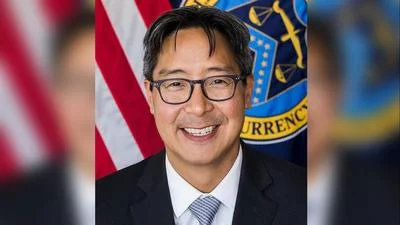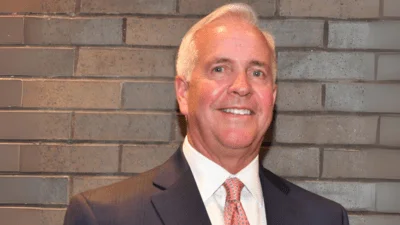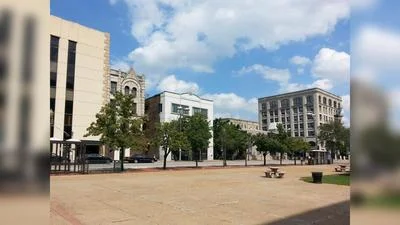Homer Glen Mayor Christina Neitzke-Troike | Christina Neitzke-Troike
Homer Glen Mayor Christina Neitzke-Troike | Christina Neitzke-Troike
Village of Homer Glen Mayor Christina Neitzke-Troike has initiated discussions about the potential dissolution of Homer Township, citing concerns over fiscal inefficiencies, redundancy and a desire to streamline government operations.
Homer Township includes Lockport, New Lenox and Lemont.
"I'm actually more in favor of the village annexing out of the township. So I personally don't care if the township exists or stays as a township. I just don't think the taxpayers of Homer Glen should be in the township,” Neitzke-Troike told Will County Gazette.
Neitzke-Troike highlighted the village's significant growth since its incorporation in 2001, with the establishment of various self-sustained services and facilities, such as a dedicated highway department and village hall, and the assumption of responsibility for local parks. She said the Village of Homer Glen has outgrown the need for the Township of Homer Glen.
Village of Homer Glen residents pay over $1.3 million in taxes to the township each year.
"When I looked at the numbers of what our residents pay into the township, we make up 62% of the township and we get zero services. So we pay money into a highway department that we don't get any services from because we have our own highway department,” she said.
Neitzke-Troike expressed concerns about the high tax burden shouldered by village residents, emphasizing the need for fiscal responsibility and efficiency in government operations. She questioned the necessity of the current township structure, which includes positions such as township supervisor, clerk and highway commissioner.
The proposed move to explore dissolution comes in line with Neitzke-Troike's Republican ideology, advocating for limited government and a reduction in redundant layers of bureaucracy.
She contends that Illinois has an excessive number of government entities compared to other states, contributing to an unnecessary financial burden on taxpayers.
“This is just an advisory question on a referendum to even just gauge what the residents want. Do the residents want the village to look into it? I don't want to spend taxpayers dollars looking into this. if this is not something they want to do in the first place,” Neitzke-Troike said.
Regarding the reported conflict with Homer Township Supervisor Steve Balich, Neitzke-Troike clarified that her motivation is not rooted in personal disagreements.
However, she did voice concerns about the financial implications of maintaining the township and the potential misuse of taxpayer funds.
"This is not a personal vendetta against Mr. Balich or any of his people. This is just something that the taxpayers of the village of Homer Glen have talked about for years, and nobody's ever taken the initiative to get the ball rolling. And when I doorknocked, that's what a lot of people said, and that's what I'm going to,” she said.
Neitzke-Troike stressed the need for open discussions with transparency, as she seeks to address the long-standing concerns of the village's residents.
To gauge public sentiment, Neitzke-Troike backed an advisory referendum question to assess whether Homer Glen residents wish to explore the dissolution of the township.
She emphasized that the decision should align with the desires of the community, and the referendum is intended to inform future actions based on their preferences. Neighboring municipalities, such as Lockport and New Lenox, have also expressed interest in examining similar measures to streamline government services and finances.
The potential referendum would allow residents to voice their views on the future of Homer Township and its relationship with the village.
In March, Homer Glen residents will vote on an advisory referendum to decide whether the village should pursue the dissolution or discontinuation of the Homer Township government.
The referendum, approved with a 4-3 vote, reflects a divide among local officials, with the recently elected mayor and her supporters in favor, and three trustees elected in 2021 opposing it.
Supporters argue that the township represents an unnecessary layer of government, highlighting the presence of 24 townships in Will County and the broader issue of excessive government entities in Illinois.
The opposition raises concerns about potential legal disputes and believes there are more urgent matters to address within the village, such as boundary agreements with neighboring municipalities, union contract negotiations and a wastewater treatment plant project.
The referendum aims to gauge residents' preferences on whether to continue paying taxes to the township for services or pursue its dissolution.
According to a report by the Illinois Policy Institute, Illinois is burdened with an excessive number of local government units, surpassing any other state in the country.
It notes Illinois’s high property tax rates and a reputation for corruption. One significant contributing factor to these issues is the state's excessive number of local government units, with nearly 7,000 in total.
Com pared to other states, Illinois has an unusually high number of local government layers, with 61% of residents living under three layers of general-purpose local government. This excludes various special districts that operate in certain areas, resulting in up to 16 different government agencies in some regions. The abundance of government layers makes it challenging for citizens to participate in the democratic process and organize efforts to reduce the number of local governments.
To address this issue, Illinois Policy suggests the state Illinois should establish more accessible pathways for citizens to consolidate local government.
This could be achieved through citizen-initiated or legislative-initiated referendums, as well as by eliminating unelected "dependent" governments. The aim is to streamline and simplify the local government structure, eliminating redundancies and increasing efficiency to save taxpayers' money.
Moreover, consolidation efforts can enhance public participation in decision-making processes and help combat corruption by making government operations more transparent and accountable. Simplifying local government would ultimately empower citizens to actively engage in democratic processes and contribute to the fight against wasteful spending.
Neitzke-Troike is a long-time resident of Homer Glen with an extensive history of community involvement and government service. She previosuly served as a Village Trustee and Village Clerk. She also has experience in business development and is involved in various charitable and community initiatives.






 Alerts Sign-up
Alerts Sign-up